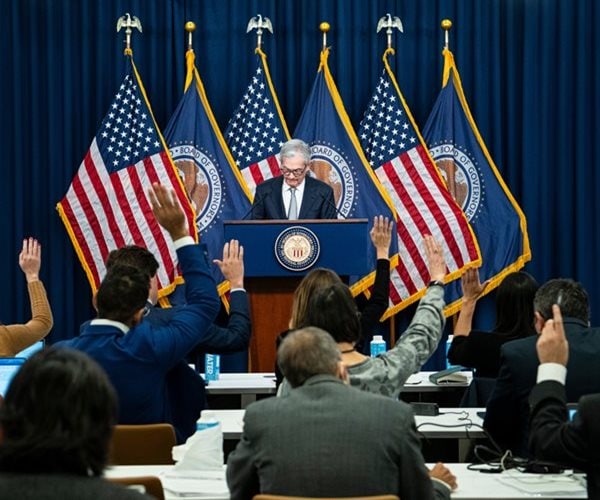The US Federal Reserve will hold the fed funds fee regular for a lot of the first half of subsequent 12 months, in accordance with the newest Reuters ballot of economists who seem snug with the primary reduce coming later than they anticipate .
As broadly predicted, the central financial institution left the Fed Funds fee between 5.25% and 5.50% for the second time in a row final week, leaving the door open for an additional fee hike, albeit apparently with much less conviction than earlier than.
“In our base case, the Fed will end elevating charges, inflation will stay above goal and rates of interest will stay excessive throughout the curve,” mentioned Andrew Hollenhorst, chief U.S. economist at Citi.
“The plan now could be to be ‘cautious’ – a phrase used a number of occasions in the course of the press convention – on additional fee will increase.”
However monetary circumstances have since eased, with 10-year Treasury yields falling about 40 foundation factors and Wall Avenue shares rising for eight consecutive classes.
All however 13 of the 100 economists surveyed between Nov. 3 and 9 mentioned the Federal Open Market Committee was executed elevating charges in probably the most aggressive tightening cycle in 4 a long time, costing them 525 foundation factors from close to zero.
That compares with 26 out of 111 in an October survey.
Whereas 86% of economists anticipate there can be no rate of interest reduce within the first quarter of subsequent 12 months, a majority of 58% say rates of interest will fall by mid-year. That was corresponding to the 55% in final month’s survey, whereas it was nonetheless greater than 70% in a September ballot.
Respondents largely maintained their views on the dangers surrounding the timing of the primary fee reduce for the third month in a row, with greater than 70% (31 out of 42) saying the higher threat was that the primary fee reduce would occur later than they anticipated. had anticipated.
All inflation measures polled by Reuters – the patron value index (CPI), core CPI, private consumption expenditures (PCE) and core PCE – would stay above the Fed’s 2% PCE goal till not less than 2025.
Fed officers have persistently mentioned charges want to remain increased for longer to ease value pressures.
One factor that would justify an earlier fee reduce is a extreme financial downturn. However that appears unlikely as soon as the world’s largest economic system posted almost 5% annualized progress final quarter.
Nonetheless, gross home product (GDP) progress was anticipated to sluggish to an annualized tempo of 1.1% this quarter and common simply 1.1% in 2024.
The unemployment fee, which rose barely to three.9% final month and has barely risen in the course of the Fed’s historic tightening marketing campaign, is predicted to rise barely to 4.4% by the top of subsequent 12 months.
RBC economist Claire Fan mentioned that whereas “softer circumstances are rising extra clearly” within the payroll information, there was “nonetheless momentum in hiring exercise.”
“However clearer indicators of moderating wage progress and low inflation charges imply the Fed doesn’t have to hike once more within the present cycle, pending softening financial circumstances elsewhere,” she wrote.
© 2023 Thomson/Reuters. All rights reserved.

